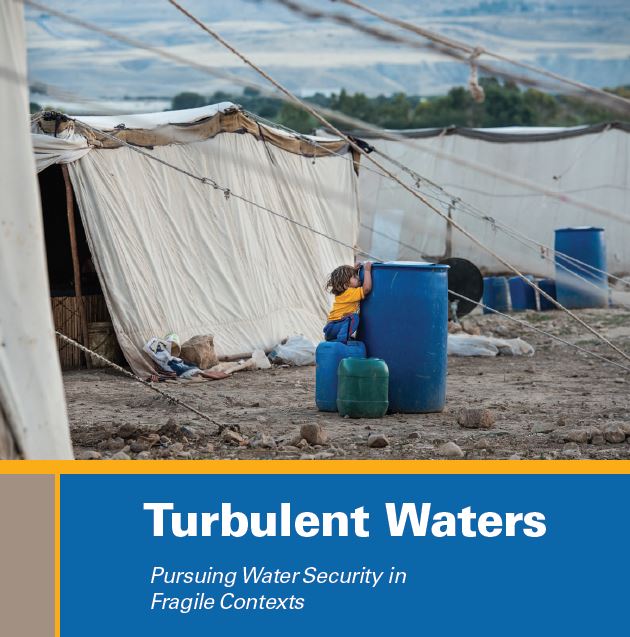Turbulent Waters: Pursuing Water Security in Fragile Contexts
Water insecurity—ranging from chronic water scarcity to lack of access to safe drinking water and sanitation services, to hydrological uncertainty and extremes (floods and droughts)—can cause severe disruptions and compound fragilities in social, economic, and environmental systems. Untangling the role of water insecurity in contributing to fragility is difficult, yet it is becoming a fundamental question for water policy worldwide given the scale of the fragility challenge. The challenge is made more urgent by the rising proportion of the world’s poor living in fragile contexts; by 2030, half of the world’s poor are expected to live in fragile conditions, rising from less than 20 percent today. The reality of climate change also aggravates the problem. This report explores the dynamics between water insecurity and fragility. It suggests that water security is more difficult to achieve in fragile contexts because of a range of factors, including weak institutions and information systems, strained human and financial resources, and degraded infrastructure. At the same time, failure to achieve water security is potentially more damaging in fragile contexts, where populations are particularly vulnerable to the direct impacts of water insecurity, and where water insecurity can intensify perceptions that the government is unwilling to or unable to meet the needs of its citizens—thereby weakening the social compact between the government and citizen groups and acting as a destabilizing force and risk multiplier. This report focuses on three main mechanisms by which water insecurity and fragility interact: (1) failure to provide citizens with basic water services; (2) failure to protect citizens from water-related disasters; and (3) failure to preserve surface, ground and transboundary water resources. These failures can give rise to a vicious cycle of water insecurity and fragility. Evidence suggests that carefully designed investments in water security can contribute to reversing the vicious cycle, promoting stability and an escape from fragility. In particular, investments that deliver basic services and preserve access to sustainable water resources are needed for communities in fragile and conflict-affected states – both as an urgent development priority and as a tangible demonstration of governments’ ability and willingness to meet the needs of its citizens. Equally important, investments in water security can provide a measure of resilience against water-related disasters and water crises, mitigating potential trigger events and preventing countries from sliding further into fragility. This report frames the challenge, draws on a growing body of evidence to explore the dynamics of water insecurity and fragility, and helps to identify and inform responses in times of crisis and shocks, as well as times of development opportunity. It argues that in some cases water management and the delivery of water services can be an integral part of the dynamics of fragility, and should therefore be carefully considered and appropriately prioritized in efforts to strengthen communities, economies and ecosystems in fragile contexts.
